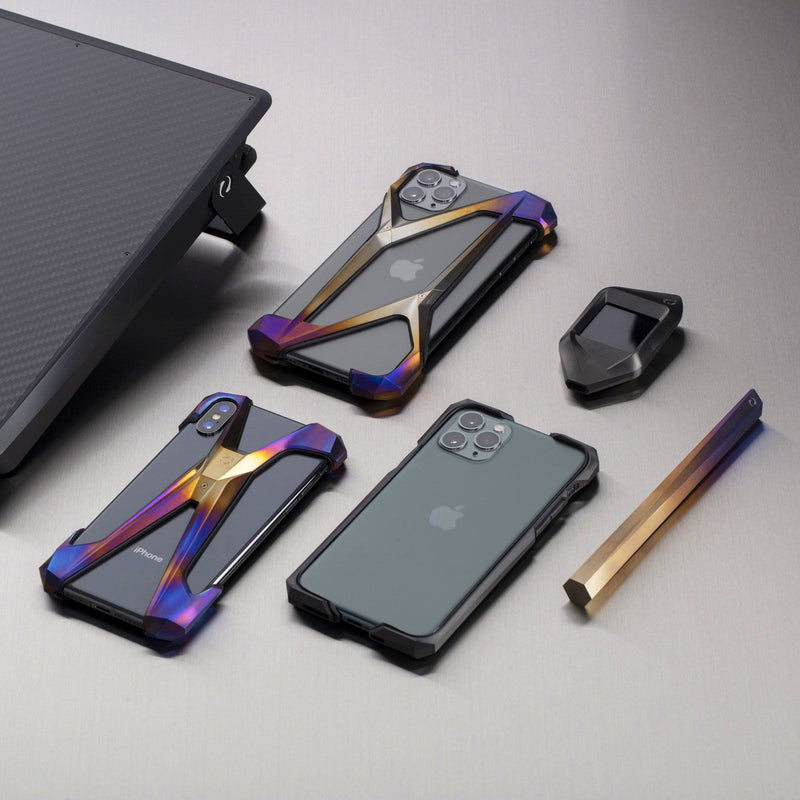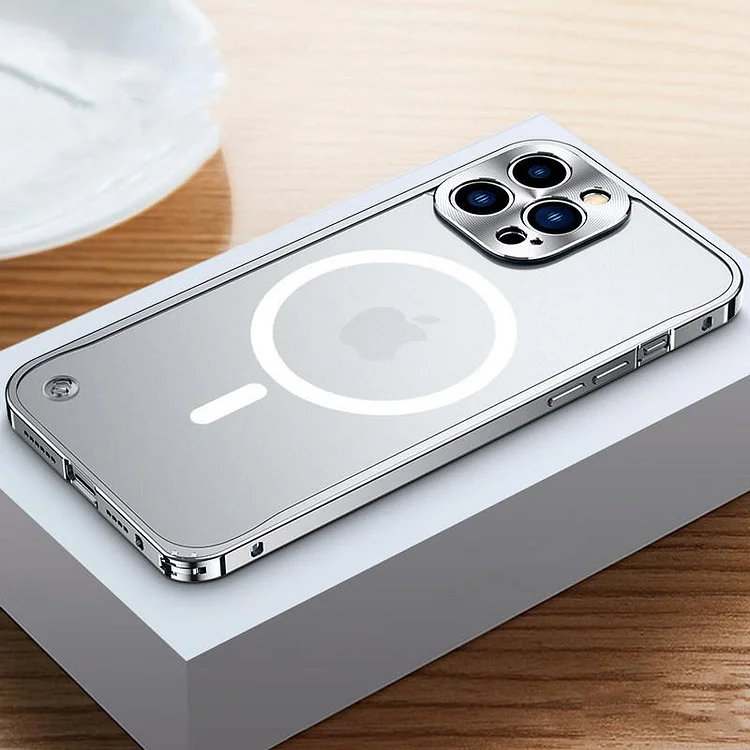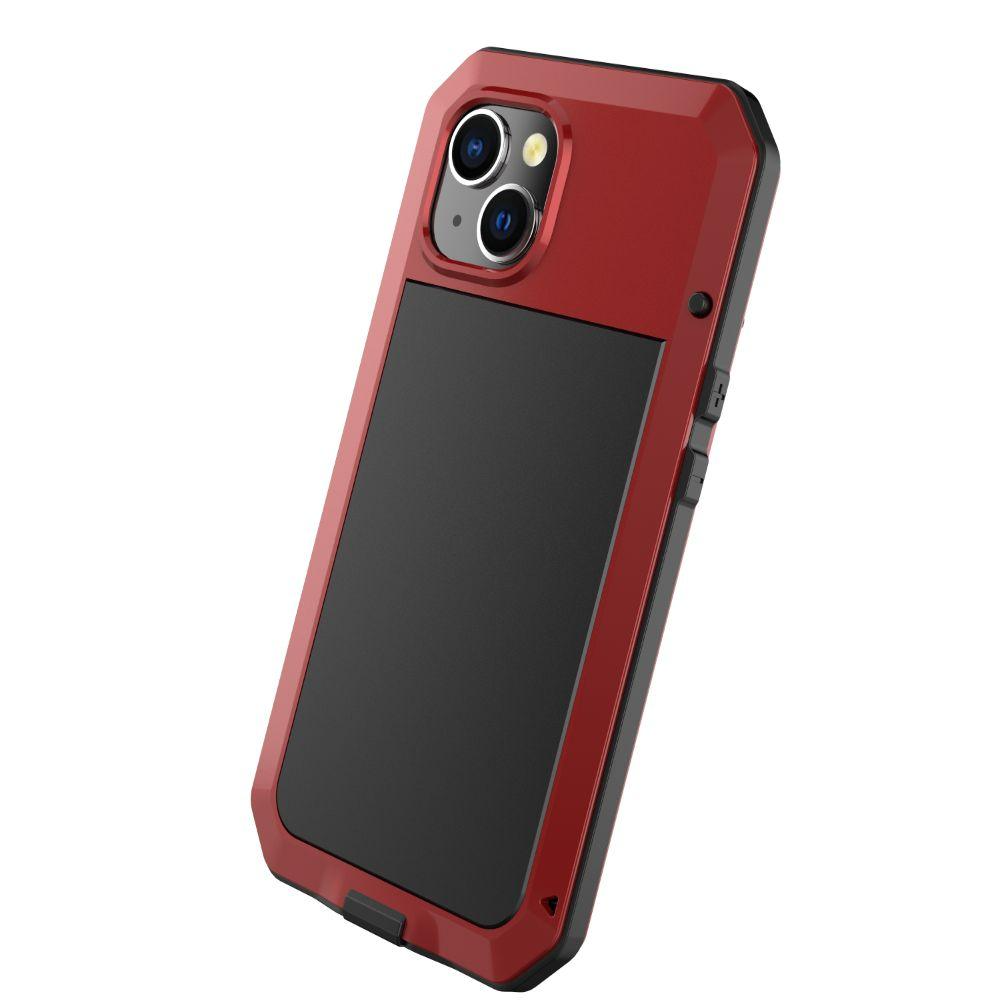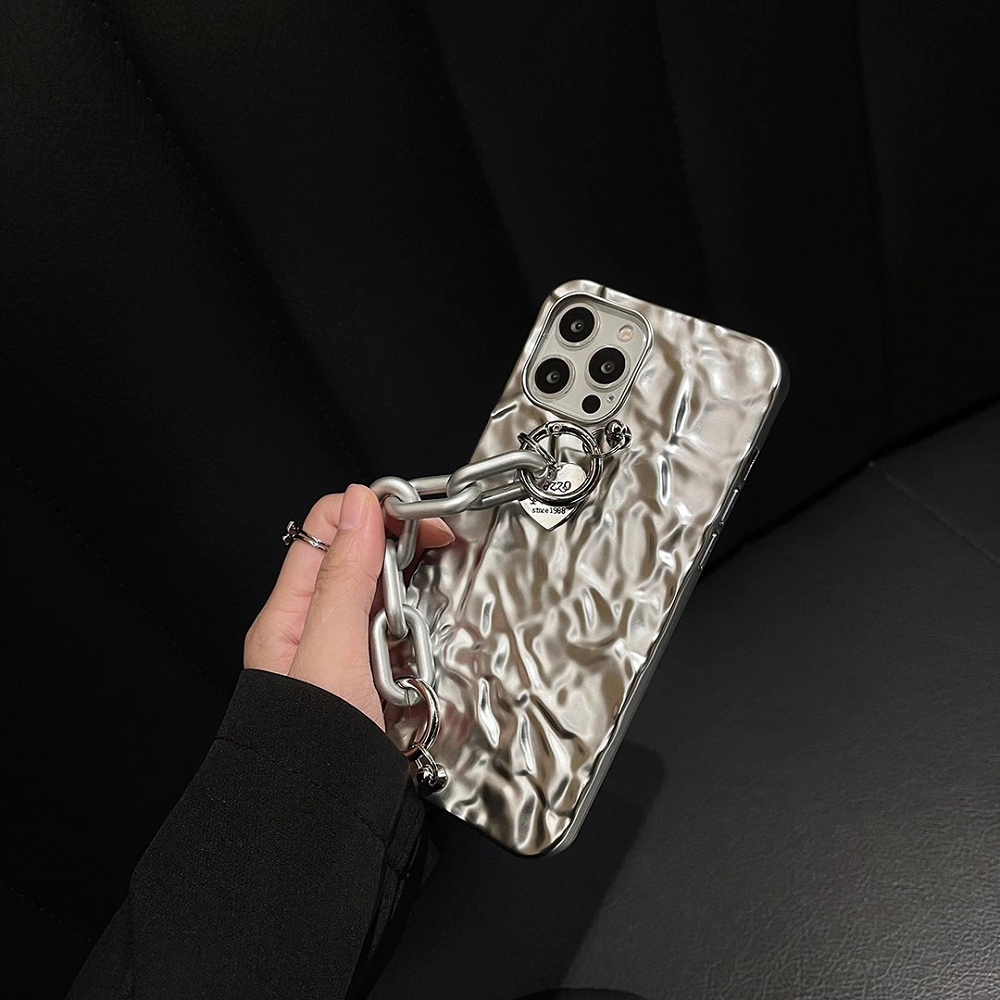Introduction to Metal Phone Cases
In an age where smartphones have become indispensable, the protection of these devices holds significant importance. Among the myriad options available, metal phone cases stand out for their durability and style. Historically, phone cases were primarily about utility. Early designs focused on basic protection, with materials like rubber and plastic leading the way. However, as smartphones evolved, so did the expectations of users. The need for enhanced protection, coupled with aesthetic appeal, paved the way for metal phone cases to emerge as a preferred choice.
The Genesis of Metal Phone Cases
The inception of metal phone cases can be traced back to the late 2000s. Initially, metal cases were seen as a luxury item, catering to a niche market. Technology enthusiasts and early adopters appreciated them for their robustness and sleek design. These early metal cases were often made of aluminum or steel. They provided superior protection compared to their plastic counterparts. As the smartphone market expanded, so did the demand for high-quality accessories. Metal phone cases gradually transitioned from being a luxury item to a mainstream necessity.
Materials Used in Metal Phone Cases
Metal phone cases come in various materials, each offering unique properties. The most common metals utilized are aluminum, titanium, and stainless steel. Aluminum cases are lightweight yet sturdy. They provide a good balance between protection and usability. Titanium, on the other hand, is known for being incredibly durable and resistant to corrosion. This material is often preferred by those seeking maximum protection. Stainless steel offers an excellent blend of aesthetics and functionality. It is corrosion-resistant and provides a premium look and feel. The choice of material often depends on the user’s preference and specific needs.
Aluminum: The Lightweight Protector
Aluminum has emerged as a popular choice for phone cases. It is valued for its lightweight properties and strength. Users appreciate the balance it offers between robust protection and ease of use. Aluminum cases can effectively shield phones from drops, bumps, and scratches. They often come with additional features like reinforced corners and shock-absorbing linings. This added layer of protection makes aluminum cases ideal for daily use. Another advantage of aluminum is its versatility in design. Manufacturers can mold aluminum into various shapes and finishes. This flexibility allows for a wide range of styles and colors, giving users ample choices.
Titanium: The Ultimate Defense
Titanium cases are synonymous with top-tier protection. This metal boasts exceptional strength and durability. It is often used in industries where high performance is critical, such as aerospace and medical devices. Titanium phone cases offer unparalleled resistance to scratches, dents, and general wear and tear. They are the go-to choice for those seeking rugged protection for their devices. One notable feature of titanium is its resistance to corrosion. It maintains its appearance and structural integrity over time. This makes titanium cases a long-term investment. Despite being heavier than aluminum, titanium cases remain manageable for everyday use.
Stainless Steel: The Blend of Luxury and Functionality
Stainless steel phone cases are often associated with a premium look and feel. This material is known for its sleek and stylish appearance. It is also highly durable and resistant to corrosion. Stainless steel cases cater to those who seek both protection and aesthetics. They provide a high level of protection against drops and scratches while maintaining a polished and sophisticated look. Additionally, stainless steel cases often feature intricate designs and finishes. This adds a touch of luxury to the device. Users who prioritize style without compromising on protection often gravitate towards stainless steel options.
Advantages of Metal Phone Cases
Metal phone cases offer numerous advantages over other materials. Their primary benefit is superior protection. Metal can endure significant impacts, safeguarding the phone from physical damage. This is particularly important for protecting the expensive and delicate screens of modern smartphones. Metal cases also provide a sense of security. Users can feel confident that their device is well-protected. Another advantage is heat dissipation. Metals like aluminum dissipate heat effectively. This can prevent the phone from overheating during prolonged use. Additionally, metal cases contribute to the phone’s rigidity. They prevent bending or warping, which is a concern for larger phones.
Enhanced Durability
The durability of metal phone cases is unmatched. They can withstand the rigors of daily use. This includes drops, knocks, and exposure to various elements. Unlike plastic cases, which may crack or degrade over time, metal cases maintain their integrity. This ensures long-lasting protection for the phone. Users can rely on metal cases to keep their devices safe. This durability also means that the case itself does not need frequent replacement. Investing in a high-quality metal case can provide peace of mind. It ensures that the phone remains in pristine condition.
Aesthetic Appeal
Metal phone cases are not just about protection; they also enhance the phone’s appearance. The sleek and modern design of metal cases adds a touch of elegance to the device. Users can choose from a variety of finishes, including matte, glossy, and textured options. This allows for personalization, matching individual styles and preferences. The premium look of metal cases is appealing. It gives the phone a sophisticated and professional appearance. This is especially important for individuals who use their phones in professional settings. Metal cases can also feature unique design elements, such as engraved patterns or logos.
Improved Heat Dissipation
Heat dissipation is another notable benefit of metal phone cases. Modern smartphones generate heat during operation, especially during intensive tasks like gaming or video streaming. Metal cases, particularly those made from aluminum, can help dissipate this heat. This effectively manages the phone’s temperature. Keeping the phone cooler can prevent performance issues. It also extends the lifespan of the device. Overheating can lead to various problems, including battery degradation. Metal cases help mitigate these risks by promoting effective heat management. This makes them an excellent choice for power users who push their devices to the limit.
Addressing Potential Drawbacks
Despite their numerous benefits, metal phone cases do have some drawbacks. One common concern is interference with wireless signals. Metal can potentially obstruct signals, affecting the phone’s reception. This is particularly relevant for cases that completely encase the device. Some manufacturers counter this by incorporating signal-boosting designs or using composite materials. Users should be aware of this potential issue and choose cases designed to minimize interference. Another consideration is the weight. Metal cases, particularly those made from stainless steel and titanium, can be heavier than plastic or silicone alternatives. Users need to balance the trade-off between added protection and increased weight.
Signal Interference Concerns
Signal interference is a legitimate concern with metal phone cases. Metal can block or weaken wireless signals. This includes cellular, Wi-Fi, and Bluetooth signals. In extreme cases, this can lead to poor reception, dropped calls, or slower data speeds. Manufacturers address this issue in several ways. Some incorporate cutouts or antennas into the case design. Others use composite materials to enhance signal strength. When selecting a metal phone case, it is essential to consider designs optimized for signal clarity. Reading reviews and selecting reputable brands can help ensure that the case does not significantly impact the phone’s performance.
Managing the Added Weight
The added weight of metal phone cases can be a drawback for some users. Aluminum cases are relatively lightweight. However, titanium and stainless steel options can be noticeably heavier. This added weight might affect the usability and comfort of the phone. Users who prioritize portability and convenience may prefer lighter materials. It is important to balance the need for protection with the desire for a lightweight phone. Some users may find that the benefits of enhanced protection outweigh the inconvenience of added weight. Others might opt for lighter metal cases or hybrid designs that incorporate plastic elements to reduce weight.
Choosing the Right Metal Phone Case
Selecting the right metal phone case involves considering several factors. These include the level of protection needed, aesthetic preferences, and potential concerns like weight and signal interference. Users should evaluate their specific needs and usage patterns. Additionally, it is essential to consider the reputation of the manufacturer. High-quality cases often come from brands with a proven track record. Reading reviews and testimonials can provide insights into the case’s performance, durability, and any potential issues. Price is another consideration. While metal cases can be more expensive than plastic options, they often offer better value due to their longevity and superior protection.
Evaluating Protection Needs
When choosing a metal phone case, the primary consideration should be the level of protection required. Users who frequently expose their phones to harsh conditions should opt for cases with reinforced designs. These might include features like shock-absorbing linings and reinforced corners. For everyday use, a standard aluminum case might suffice. It is essential to assess one’s lifestyle and potential risks to the phone. Those who participate in outdoor activities or work in demanding environments should prioritize robust protection. Conversely, users who primarily use their phones in low-risk settings can opt for slimmer, less heavy-duty models.
Assessing Aesthetic Preferences
Aesthetic preferences play a crucial role in selecting a metal phone case. The sleek, modern look of metal cases is one of their main appeals. Users should consider the color, finish, and overall design of the case. Some might prefer a matte finish for a more understated look, while others might lean towards glossy or textured options. The case should complement the phone’s design and align with the user’s style. Additionally, features like engraving or unique patterns can personalize the case further. Paying attention to these details ensures that the case not only protects the phone but also enhances its visual appeal.
Considering Manufacturer Reputation
The reputation of the manufacturer is a critical factor in selecting a metal phone case. High-quality cases are often associated with established brands known for their reliability and craftsmanship. Users should conduct research and read reviews to gauge the performance of different cases. Reliable manufacturers provide detailed product information, including the materials used and the features offered. Warranty and customer support are additional indicators of a reputable brand. Investing in a well-reviewed case from a reputable manufacturer can prevent issues like poor fit, signal interference, or premature wear. It ensures that the user receives a product that meets their expectations and provides long-term value.
The Future of Metal Phone Cases
The market for metal phone cases continues to evolve. Advances in technology and materials are driving innovation. Future trends might include the incorporation of smart features into metal cases. These could include wireless charging capabilities or integrated sensors for health monitoring. The focus on sustainability is also growing. Manufacturers might explore eco-friendly materials and production processes. Customization and personalization will likely remain significant trends. Users increasingly seek unique, tailored options that reflect their personalities. As smartphones continue to develop, the demand for high-quality, multifunctional accessories like metal phone cases will persist. The future of metal phone cases promises continued innovation and enhanced functionality.
Integration of Smart Features
The integration of smart features into phone cases represents a promising trend. Metal phone cases could soon incorporate technologies like wireless charging. This would eliminate the need for removing the case when charging the phone wirelessly. Integrated sensors for health monitoring or fitness tracking could also become a reality. These features would transform the phone case from a protective accessory into a multifunctional device. The potential for innovation in this space is vast. As technology advances, the line between phone and accessory will continue to blur. Users can expect metal phone cases to offer more than just protection in the future.
Focus on Sustainability
Sustainability is becoming increasingly important in the consumer electronics market. Manufacturers of metal phone cases are likely to explore more eco-friendly practices. This could include using recycled materials or adopting greener production methods. Metal cases have an inherent advantage in this regard due to their durability and longevity. A robust metal case can significantly extend the life of a phone, reducing electronic waste. Users are also becoming more conscious of the environmental impact of their purchases. Manufacturers that prioritize sustainability can attract eco-minded consumers. This focus on sustainability aligns with broader industry trends towards greener practices and products.
Increased Customization and Personalization
Customization and personalization are growing trends in the phone case market. Metal phone cases offer ample opportunities for personalization. Advanced manufacturing techniques allow for intricate designs, engravings, and custom finishes. Users increasingly seek unique cases that reflect their individual styles. Manufacturers are responding by offering more options and bespoke services. This trend towards customization ensures that each user can find or create a metal phone case that suits their preferences perfectly. The ability to personalize a phone case enhances its appeal and adds a personal touch, making the phone not just a device but a reflection of the user’s personality.
Conclusion
Metal phone cases have carved out a significant niche in the smartphone accessory market. Their evolution reflects broader trends in technology and consumer preferences. From humble beginnings as luxury items, metal cases have become mainstream due to their superior protection and aesthetic appeal. The variety of materials, including aluminum, titanium, and stainless steel, offers users numerous options. Each material provides unique benefits, catering to different needs and preferences. The advantages of metal phone cases are clear. Their durability, aesthetic appeal, and heat dissipation properties make them stand out. While there are potential drawbacks, such as weight and signal interference, informed choices can mitigate these issues.
The future of metal phone cases looks promising. The integration of smart features, a focus on sustainability, and increased personalization are likely trends. As technology continues to advance, metal phone cases will remain a critical accessory, balancing protection with style. Investing in a high-quality metal phone case can provide long-term value, ensuring that smartphones remain safe and stylish.
In summary, metal phone cases represent a blend of tradition and innovation in the ever-evolving world of smartphone accessories. They reflect the growing demand for products that offer both functionality and aesthetic value. Users seeking reliable protection and a touch of elegance will find metal phone cases a worthy investment.



